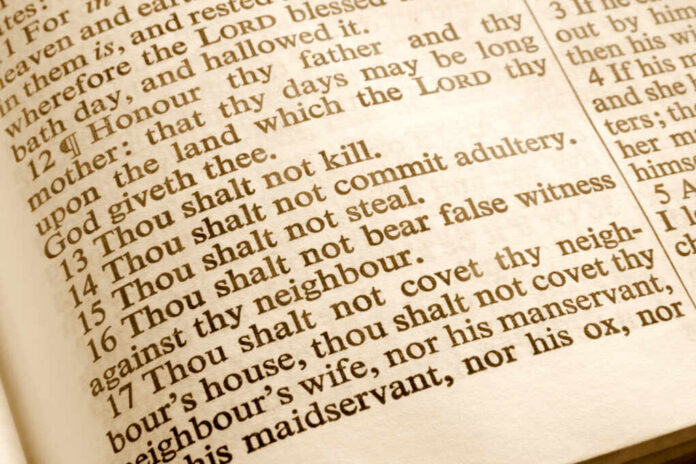
Under a proposed law that is making its way through legislative committees, public schools in Louisiana could be required to display the Ten Commandments in every classroom.
House Bill 71, introduced by state Rep. Dodie Horton (R) and state Sen. Adam Bass (R), was approved by the House Committee on Education on Thursday, April 4. The passing vote of 10-2 sends the legislation to the House floor to be considered. One Democrat joined Republicans in supporting the bill and one Republican opposed it along with the other Democrats.
Louisiana Advances Classroom Ten Commandments Display Bill Following SCOTUS Precedenthttps://t.co/v3yyhlWjKH
— RedState (@RedState) April 10, 2024
If signed into law, the bill would require that every public classroom in the Bayou State display the Ten Commandments, presented at least at the size of a poster. The display would not come out of taxpayer funds but be provided by private donors. Additionally, they would not require teachers to instruct students about the Christian doctrine.
However, despite its passage in the committee, the legislation faces ongoing scrutiny, including arguments that there must be a respect for the separation of church and state and that the bill is of a strictly religious nature. So far, no similar efforts to present the Ten Commandments in public schools have been successful, including cases in South Carolina and Texas.
Horton and Bass told members of the education committee that they are confident the proposal would move forward in the House in spite of some arguments that it is not constitutionally valid. Bass also expressed “hope” that the bill “will serve as an example to the rest of the country.”
In the past, Horton co-sponsored a successful bill that requires every classroom to include signs reading, “In God We Trust.” This motion was signed into law by then Gov. John Bel Edwards (D-LA) in August 2023.
Leading the argument for HB 71 is the 2022 United States Supreme Court decision, Kennedy v. Bremerton. This case was filed by Joseph Kennedy, a high school football coach who sued the Bremerton School District in Washington state after he was put on leave for refusing to stop his post-game prayer routine on the field.
Although the district was not found liable for removing the coach based on his free speech—a decision upheld by the Ninth Circuit Court of Appeals, which declared he was suspended to avoid favoring religions in violation of the Constitution’s establishment clause—the United States Supreme Court overruled the appellate court and ruled that Kennedy’s prayerful actions were protected under the First Amendment.













